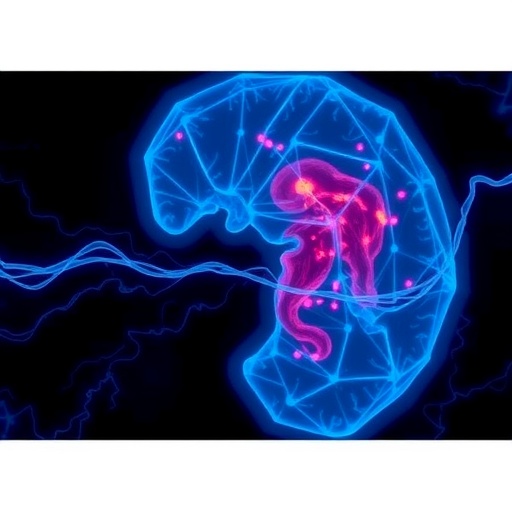In a groundbreaking study poised to reshape therapeutic strategies against multiple myeloma (MM), researchers have uncovered a critical survival dependency within malignant plasma cells: Protein Arginine N-Methyltransferase 1 (PRMT1). MM, a deadly and widely prevalent hematological cancer characterized by unchecked proliferation of antibody-producing plasma cells, has long eluded curative intervention due to its notorious ability to develop drug resistance and relapse. This new research, published in BMC Cancer, illuminates PRMT1 as a promising molecular target that underpins survival in MM cells, highlighting the potential for novel, more effective therapies.
The investigation began with an innovative CRISPR/Cas9 gene-editing screen designed to systematically probe 197 genes associated with the DNA damage response (DDR) — a critical cellular safeguard against genomic instability. Among these genes, PRMT1 distinctly emerged as a top hit, signifying its essential role in MM cell viability. PRMT1 belongs to the family of Type I Protein Arginine Methyltransferases, enzymes known for catalyzing asymmetric dimethylation on arginine residues, thereby profoundly influencing various cellular processes such as transcription regulation, RNA processing, and signal transduction.
Notably, dysregulation or overexpression of PRMT1 has been documented across multiple malignancies, often correlating with adverse outcomes and drug resistance mechanisms. In MM, this enzyme’s elevated activity appears to bolster the pathogens’ survival capabilities, suggesting that targeting PRMT1 could undermine the cancer’s resilience. To validate this hypothesis, the researchers employed GSK3368715, a selective inhibitor of Type I PRMTs, to pharmacologically inhibit PRMT1 activity in a spectrum of MM cell lines.
The results were stark and promising: treatment with GSK3368715 precipitated a dose-dependent decline in MM cell survival. This cytotoxicity was accompanied by biochemical shifts including a reduction in asymmetric dimethylarginine (ADMA), the enzymatic signature of PRMT1 action, and a concomitant increase in arginine monomethylation (MMA). Such changes underscore a disruption in the enzyme’s post-translational modification landscape, which is integral to maintaining malignant cellular functions.
Crucially, cell cycle analyses revealed that PRMT1 inhibition induced a pronounced accumulation of MM cells in the G0/G1 phase coupled with a marked decrease in S phase population, implicating cell cycle arrest as a mechanistic consequence of enzyme blockade. This stalling in the early phases of the cycle interferes with DNA replication and, by extension, cellular proliferation – a fundamental strategy to curb cancer growth.
At the molecular level, gene expression profiling indicated significant downregulation of cohorts involved in cell proliferation, DNA replication, and the broader DNA damage response pathways following pharmacological inhibition of PRMT1. Such perturbations likely compromise genomic integrity, augmenting DNA damage and diminishing the cells’ capacity to repair and thrive under intrinsic and therapeutic stress conditions.
Complementing these findings, Reverse Phase Protein Array (RPPA) assays unveiled a dramatic reduction in the abundance of proteins instrumental in regulating the cell cycle and DNA repair mechanisms. This proteomic shift aligns seamlessly with transcriptomic data, painting a coherent picture of widespread disruption to oncogenic signaling networks upon PRMT1 suppression.
The implications of these findings extend beyond academic curiosity. They chart a feasible trajectory towards clinical exploitation of PRMT1 inhibition in MM, a disease that to date has witnessed only incremental improvements despite sophisticated treatment regimens. The vulnerability exposed here opens the door for integrating Type I PRMT inhibitors into therapeutic protocols, potentially in combination with existing agents to tackle refractory or relapsed disease.
Importantly, this study enriches our understanding of how post-translational modifications orchestrated by PRMTs contribute to cancer pathophysiology. PRMT1’s role extends beyond mere epiphenomenon, representing a crucial hub that coordinates transcriptional programs and DNA repair fidelity, thereby sustaining MM cell viability. Targeting such a linchpin could thus deliver a disruptive blow to the molecular machinery that MM cells exploit for survival.
While the therapeutic promise is compelling, it also invites rigorous investigation into the safety and specificity of PRMT1-targeted therapies. Since PRMT1 functions in normal cellular physiology, discerning a therapeutic window that spares healthy cells while selectively eradicating malignant ones will be paramount. Additionally, resistance mechanisms that might emerge upon chronic PRMT1 inhibition warrant proactive examination.
Beyond multiple myeloma, the study’s insights echo throughout oncology, suggesting that PRMT1 inhibition might hold efficacy in other tumors characterized by similar biochemical dependencies. A broad exploration of PRMT1’s oncogenic roles across cancer types could herald a new class of epigenetic and post-translational targeted therapies.
The team’s innovative use of CRISPR screening combined with pharmacological validation exemplifies the modern approach to cancer research — integrating genetic, proteomic, and biochemical methodologies to isolate actionable targets. The work also highlights the growing importance of epigenetic modifiers in the therapeutic landscape, ushering in opportunities to remodel cancer cell circuitry.
Future studies will likely focus on translating these promising findings from cell culture to preclinical animal models and ultimately clinical trials. Evaluating the efficacy, dosage, pharmacokinetics, and potential toxicities of PRMT1 inhibitors in vivo will be critical steps toward real-world application.
In sum, the discovery of PRMT1 as a critical survival dependency in multiple myeloma redefines the therapeutic paradigm for this challenging hematological malignancy. By unraveling the mechanistic underpinnings linking arginine methylation to cancer cell survival, researchers have unveiled a potent new therapeutic target poised to transform multiple myeloma treatment.
As the scientific community builds upon these findings, patients facing multiple myeloma can remain hopeful for a future where more effective, targeted therapies improve survival outcomes and quality of life — all stemming from the intricate biology of a single enzyme, PRMT1.
Subject of Research: Therapeutic targeting of Protein Arginine N-Methyltransferase 1 (PRMT1) in multiple myeloma.
Article Title: Therapeutic potential of PRMT1 as a critical survival dependency target in multiple myeloma
Article References:
Hussain, T., Awasthi, S., Shahid, F. et al. Therapeutic potential of PRMT1 as a critical survival dependency target in multiple myeloma. BMC Cancer 25, 1704 (2025). https://doi.org/10.1186/s12885-025-15104-w
Image Credits: Scienmag.com
DOI: 10.1186/s12885-025-15104-w (Published 04 November 2025)




